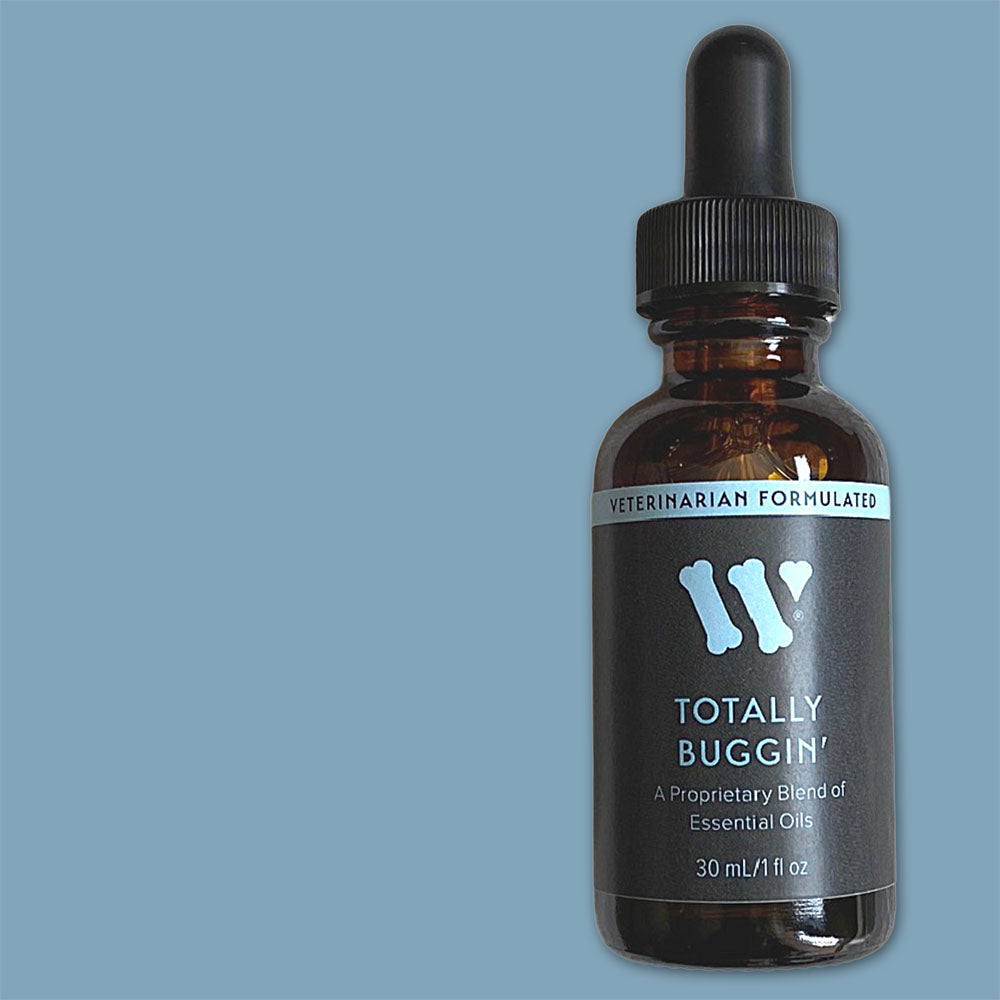
Flea & Tick
It’s no secret that we dislike pesticidal oral flea/tick/heartworm treatments. We’re not alone in our fears and observations; many proactive/holistic veterinarians are also worried about the impact these chemicals are having on the health of our dogs and the environment. Dr. Jean Dodds and Dr. Judy Morgan, along with a few other colleagues, decided to dig deeper after witnessing too much devastation.
Their peer reviewed study revealed that 2 out of 3 dog owners witnessed negative side effects after feeding or applying pesticides. These included:
- Weakness
- Anxiety
- Behaviour changes
- Phobias
- Hair loss
- Trembling
- Diarrhea
- Vomiting
- Seizures
- Ataxia
- Death
We hear about these too. In fact there’s a noticeable spike each spring and summer: pet parents reporting their dog’s are suddenly off their food or are experiencing GI issues. We’ve had owners come in whose dogs never suffered with allergies but now can’t stop scratching; one dog was losing fur at an alarming rate. We wish we could say these are the worst of our customers’ stories.
This isn’t surprising when you understand how these medications work. Depending on whether they’re topical or oral (administered via the skin or the digestive tract), they deliver a pesticide/neurotoxin into the bloodstream. The flea or tick needs to bite the dog and ingest their blood in order to die. Would you eat that?
Apart from the negative health effects, scientists are also discovering their detrimental impact on the environment. One large dog dose of imidacloprid contains enough pesticide to kill 25 million bees**. In the UK, water testing revealed these chemicals were in ponds and waterways, and a more recent study showed their devastating impact on birds, leading researchers to suggest a rethink of how these chemicals are prescribed and used.
What Can You Do?
Learn Your Risks
You’re the captain of your dog’s health team, so take the time to assess the risks and the benefits involved. For example, don’t assume that because you have a cottage you’re at risk. You can find online maps*** of areas that outline where ticks as well as lyme and heartworm are prevalent. (If your dog is at risk for one type of pest and not the other, there are slightly safer drugs that work on individual pests.)
Test Regularly
Another key component is testing. Even a dog taking pharmaceutical pesticides can acquire tick- and flea-borne illnesses because the drugs aren’t repellants. So regardless of your protocol, you should be regularly testing. When caught early, tick-borne diseases are treatable. There are many reasons to have your dog’s blood work checked yearly, and this is just one of them.
Consider Safer Alternatives
If you decide to use a natural approach it’ll require a little more diligence. But in our opinion, it’s worth it!
-
Shampoo your dog with a natural shampoo containing essential oils like neem and lemongrass, and let it sit for a few minutes before rinsing.
-
Add powdered supplements to your dog’s food to help repel pests.
-
Use a high quality outdoor spray. It might take a few tries to find the right one for your dog.
-
Perform regular flea and tick checks.
-
Test yearly, or even more often if there’s cause for concern (for example, if you find a tick on your dog).
-
Use a lava collar.
Be Proactive
Many proactive vets will also tell you that a dog with a healthy immune system is a less desirable host. A great way to help your dog maintain a healthy immune system is to feed real food, titre-test before vaccine boosting, and feed lots of functional foods and antioxidants.
Detoxify
If you’re going ahead with pharmaceuticals, we recommend using milk thistle for a few days leading up to the treatment. For a week after treatment, you should be in full detox mode with Dr. Karen Becker’s detox protocol, created specifically to these meds:
Once per day, give:
- Milk thistle 100 mg / 10 lb
- Gaba 100 mg / 20 lb
- NAC 100mg / 10 lb
- SOD (Superoxide Dismutase) 50mg / 10 lb
- Glutathione mg / 10 lb
If you’re interested in what our favourite local integrative vet has to say on the subject, you can watch her webinar here.









